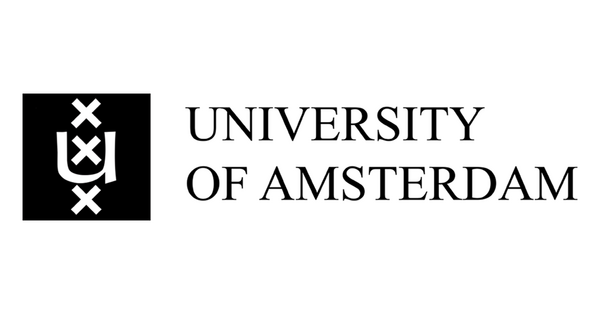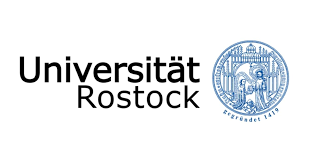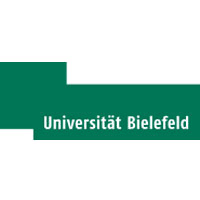Snabbfakta
-
- Amsterdam
- Heltid
- Rekrytering
Kategorier:
- Kemi
- Beräkningsvetenskaper
Titlar:
- Doktorand
Ansök senast: 2024-06-30
PhD in Computational Chemistry
JOB DESCRIPTION
PRONTO (PROperty prediction by Network TOpology modelling of polymer films) is a 3-PhD project concerning ‘drying’ of paints or coating solutions, a solidification process where multifunctional monomers in the liquid polymerize into a polymer network: a single large molecule spanning the entire volume. Rates of reactions and diffusion define the network formation, but are dramatically influenced by the density of the growing network. To address this complexity, the PRONTO researchers will develop multiscale computational models connecting atomic-level molecular simulations, mesoscopic reaction kinetics and network modelling, and macroscopic continuum modelling. PRONTO is a collaboration between Universiteit van Amsterdam, Utrecht University, Canon Production Printing (Venlo), AkzoNobel Performance Coatings (Sassenheim), Reden (Engineering and simulation, Hengelo OV) and the Rijksmuseum in Amsterdam. The project is financed by NWO and Canon.
What are you going to do?
The PhD will do research in network modelling based on graph theory and population balances, mathematical tools describing changes of molecules on a coarse-grained level. The Random Graph approach is further developed to further increase the capability to account for topological features determining the change of molecular mobility responsible for decrease of reaction rates.
Tasks and responsibilities:
- Perform research in modelling of polymer networks;
- Publish findings;
- Attend and present at conferences;
- Collaborate in multidisciplinary team of all PRONTO-partners;
- Communicate research results with the non-academic partners of the project (2x per year);
- Provide assistance with teaching at HIMS.
REQUIREMENTS
Your experience and profile:
- A recent MSc degree in Chemical engineering, Physics, Scientific Computing or Applied Mathematics (familiarity with Statistical Physics or Soft Matter is an advantage);
- A strong background in chemistry, physics or computational science;
- Affinity and/or experience with continuum modelling with kinetic modeling, Random Graph modeling, and partial differential equations (PDEs) is preferred;
- Affinity and/or experience with molecular simulations is preferred;
- Good programming skills preferred;
- Good communication skills in oral and written English;
- Strong initiative and good time management skills;
- Interest in collaborating with students PhDs and postdoctoral researchers in related projects and research groups within and outside the Netherlands.
CONDITIONS OF EMPLOYMENT
A temporary contract for 38 hours per week for the duration of 4 years (the initial contract will be for a period of 18 months and after satisfactory evaluation it will be extended for a total duration of 4 years). The preferred starting date is a soon as possible. This should lead to a dissertation (PhD thesis). We will draft an educational plan that includes attendance of courses and (international) meetings. We also expect you to assist in teaching undergraduates and master students.
The gross monthly salary, based on 38 hours per week and dependent on relevant experience, ranges between €2,770 - €3,539. This does not include 8% holiday allowance and 8,3% year-end allowance. The Collective Labour Agreement of Dutch Universities is applicable.
Besides the salary and a vibrant and challenging environment at Science Park we offer you multiple fringe benefits:
- 232 holiday hours per year (based on fulltime) and extra holidays between Christmas and 1 January;
- multiple courses to follow from our Teaching and Learning Centre;
- a complete educational program for PhD students;
- multiple courses on topics such as time management, handling stress and an online learning platform with 100+ different courses;
- 7 weeks birth leave (partner leave) with 100% salary;
- partly paid parental leave;
- the possibility to set up a workplace at home;
- a pension at ABP for which UvA pays two third part of the contribution;
- the possibility to follow courses to learn Dutch.
Are you curious to read more about our extensive package of secondary employment benefits, take a look here.
EMPLOYER
Faculty of Science
The University of Amsterdam is the Netherlands' largest university, offering the widest range of academic programmes. At the UvA, 30,000 students, 6,000 staff members and 3,000 PhD candidates study and work in a diverse range of fields, connected by a culture of curiosity. The Van 't Hoff Institute for Molecular Sciences (HIMS) is one of eight institutes of the University of Amsterdam (UvA) Faculty of Science. Research is organized into four themes: Analytical Chemistry, Computational Chemistry, Synthesis & Catalysis and Molecular Photonics.
Computational Chemistry is one of the research groups within the Van 't Hoff Institute for Molecular Sciences at the University of Amsterdam. Our research focuses on the development and application of advanced molecular simulation and multiscale modelling methodology to obtain novel and improved understanding of the behaviour of (bio)materials, and of complex (bio)chemical and physical processes that are of technological and scientific importance.
The Faculty of Science has a student body of around 8,000, as well as 1,800 members of staff working in education, research or support services. Researchers and students at the Faculty of Science are fascinated by every aspect of how the world works, be it elementary particles, the birth of the universe or the functioning of the brain.
Want to know more about our organisation? Read more about working at the University of Amsterdam.
ADDITIONAL INFORMATION
Do you have any questions or do you require additional information? Please contact:
- Dr. D. (David) Dubbeldam, Associate professor



